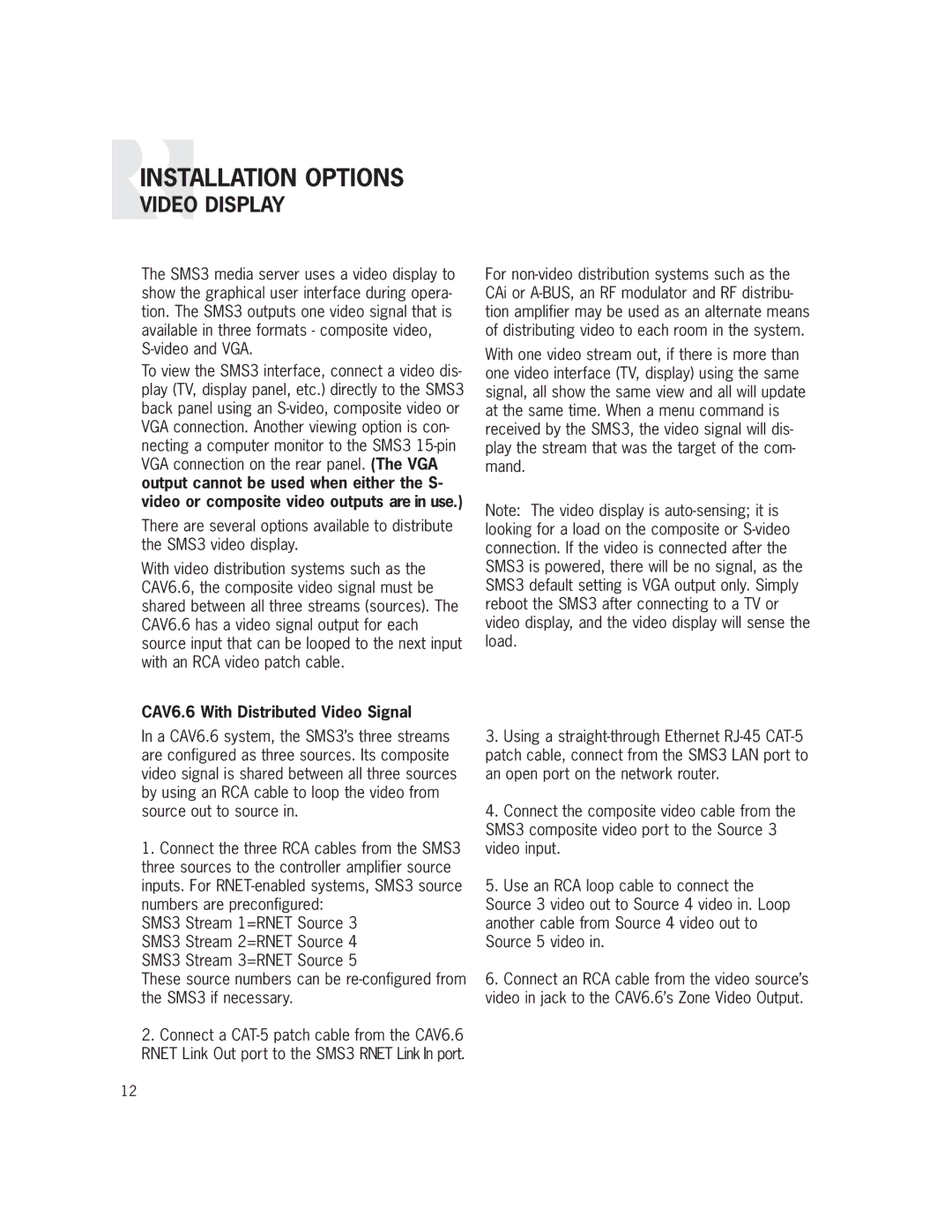
INSTALLATION OPTIONS
VIDEO DISPLAY
The SMS3 media server uses a video display to show the graphical user interface during opera- tion. The SMS3 outputs one video signal that is available in three formats - composite video,
To view the SMS3 interface, connect a video dis- play (TV, display panel, etc.) directly to the SMS3 back panel using an
There are several options available to distribute the SMS3 video display.
With video distribution systems such as the CAV6.6, the composite video signal must be shared between all three streams (sources). The CAV6.6 has a video signal output for each source input that can be looped to the next input with an RCA video patch cable.
For
With one video stream out, if there is more than one video interface (TV, display) using the same signal, all show the same view and all will update at the same time. When a menu command is received by the SMS3, the video signal will dis- play the stream that was the target of the com- mand.
Note: The video display is
CAV6.6 With Distributed Video Signal
In a CAV6.6 system, the SMS3’s three streams are configured as three sources. Its composite video signal is shared between all three sources by using an RCA cable to loop the video from source out to source in.
1.Connect the three RCA cables from the SMS3 three sources to the controller amplifier source inputs. For
SMS3 Stream 1=RNET Source 3 SMS3 Stream 2=RNET Source 4 SMS3 Stream 3=RNET Source 5
These source numbers can be
2.Connect a
3.Using a
4.Connect the composite video cable from the SMS3 composite video port to the Source 3 video input.
5.Use an RCA loop cable to connect the
Source 3 video out to Source 4 video in. Loop another cable from Source 4 video out to Source 5 video in.
6.Connect an RCA cable from the video source’s video in jack to the CAV6.6’s Zone Video Output.
12
